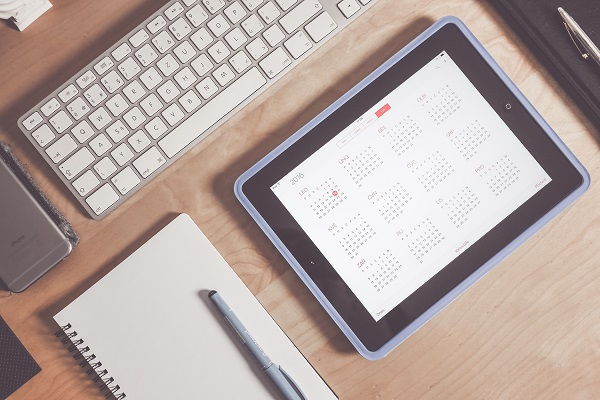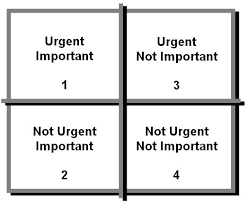Are you constantly finding yourself strapped for time?
Does it feel that no matter how well you start off the semester, you always end up falling into bad habits?
Perhaps you’re guilty of getting distracted by things that don’t matter, or leaving your essays to the last minute.
Well, Caro Student wants to help, by providing you with some incredibly easy time management strategies you can start using TODAY.
(Combine some of these with our award-winning student accommodation in Liverpool, and you’ve got yourself a winning combo for success.)
But even if you’re not a Liverpool student, we’re certain you’ll benefit from these genius time-cracking tips.
Time management’s a bitch
Time management is one of the crucial skills to master to be successful at uni, and yet the majority of students struggle with it.
After all, time is the most valuable (and limited) resource we have. Wasting it shouldn’t be taken lightly.

Failing to manage your time can lead to problems later down the line, such as feeling overwhelmed or stressed; struggling to concentrate on any one task; finding it hard to prioritise and not getting everything done.
When you learn to manage your time effectively, with some dependable, proven techniques, many other things fall into place. You feel happier, more in control, less stressed. You’ll worry less, work more efficiently, and submit higher quality work, will will inevitably lead to a higher grade in all of your modules.
You also have more time for the things you love – a definite benefit of rationing your time accordingly.
So how exactly, can you improve the way you manage your time?
Here are 10 techniques that you can start putting into play right away.
1. Improve your concentration with the Pomodoro Technique
A huge reason that so many students are bad at organising their time is because they report difficulties concentrating.
If you’re not concentrating effectively, your study sessions will become longer and you’ll be spending more time studying than you actually need to.
Not to mention…you’ll be taking in less information during those study sessions.
The Pomodoro technique is a popular, proven technique used by students, entrepreneurs and many successful people all over the world. It works by gradually increasing the time spent concentrating, giving you time to ‘train’ your brain’s concentration muscle.

Give the Pomodoro technique a go with the following steps:
- Choose a clear task and get ready to focus solely on that task.
- Set your timer to 10 minutes and start. If you get distracted by thoughts, don’t fret but simply return to the task.
- If a distraction pulls you away from the task, restart your timer when you come back to it again.
- Once you have completed a full 10 minutes, give yourself a pat on the back!
- Continue this way until you can effortlessly concentrate for ten minutes. Increase the timer slowly to 15, 20 and then 25 minutes. (The official Pomodoro timer is 25 minutes, with a five minute break.)
2. Boost your motivation by reminding yourself WHY.

All too often, students (and people in general) go through the motions of making time for stuff, when they in fact don’t have any real connection to what they’re doing.
Not only does make it harder to stick to a plan, it can also be a massive time-waster if you realise you don’t actually care about the things you were making time for in the first place!
Before you begin to figure out where to spend your time, and whilst you are organising it, it’s important to find the reasons WHY so that you’re more likely to make time for what’s really important.
When working out how to structure your time, it can help to do the following:
- Decide on an overarching goal you are trying to achieve, from your studies, or maybe the university experience in general. This doesn’t mean having to know what career you will take or even what modules you will take next semester. It just involves thinking about what you’d like to get out of university, in an ideal scenario. Write this down.
- Ask yourself what it is you need to do on a daily, weekly and maybe monthly basis to make this goal (or multiple goals) come true. Make a list of those tasks or responsibilities.
- Ask yourself what might happen if you don’t do those tasks. Write these potential consequences down so they seem more real and significant.
- If you can, connect these ‘musts’ to other things in your life that are important to you. For example, your ideal university scenario might be to try lots of new things and get at least a 2:1 in your degree. You might strengthen your connection to this aim by reminding yourself of your desire to become more confident and work in a specific area after uni.
3. Simplify your week with a life schedule/timetable.

You’ll likely receive a timetable at the start of the semester, detailing your classes, tutorials and lectures etc. But this is only one part of your week.
Creating a life schedule or timetable will help you cover everything you have to do in a general week, not just the classes you have to attend. This gives you a more realistic overview of what exactly will be demanding your time over the course of a week, so you can work in study sessions and socialising accordingly.
Your life schedule will inevitably change over the course of a semester, as different responsibilities and interests present themselves.
However, here’s how to get yours started:
- Purchase a weekly wall planner or wall calendar that you can use to outline your typical weekly schedule on. There are actually dry-wipe magnetic versions available, which allow you to rub out and change your schedule more easily.
- Otherwise, you can simply use a large piece of paper (A4 or larger) and draw your own grid. Make columns for the days and rows for time chunks, such as early morning, mid-morning, lunch, afternoon, early evening and late evening. You may wish to copy the layout of your actual class timetable.
- Before adding any info to the schedule, bear in mind that you only have about 8-10 hours of the day that you’ll spend doing stuff. Allow yourself around 7-8 hours of sleep a night, and about 35 hours a week overall for studying (this is generally how much time students are expected to dedicate to their studies, including classes and independent study). Remember also that things take longer than expected, so allow yourself a bit of wiggle room in between commitments and tasks.
- Add your classes to the schedule first.

- Then add any extra-curricular events or activities you may have. Try and keep this to regular and recurring events, and not one-offs. You can write one-off events (like society socials) in your diary or phone calendar. This schedule is here to help you develop routine.
- If there are any regular obligations you’re expected to do in a week, like call your mum or your grandparents every Wednesday night, then add this to the schedule too. Sure, these things can be moved if necessarily, but it’s good to remind yourself.
- Other things you might want to add to the schedule include: house chores; workouts; when you’ll do your grocery shopping, and maybe even meal prep, if meal prepping is your thing.
- Feel free to add a colour code for each type of activity. So, classes may be one colour; extra curricular activities another; bill-paying and other essential tasks another etc etc.
- Once you can see everything you have on your plate in a week, you can work out where to fit in dedicated study sessions. Now, depending on how much other stuff you’re juggling, this might involve moving some things around, but it’s important you aim for around 35 hours of studying a week (including classes and lectures). When and how much you study will of course change and probably increase as the semester goes on, and will naturally be dictated by tests and deadlines. However, it’s good to at least set aside time after a class to go over whatever you’ve learned, so that revision becomes easier later.
- Revise your weekly schedule with each week to make sure it’s working for you. Change things, swap them around or remove them completely if it makes it easier to get all of the essential stuff done. You can even draw up a brand new weekly schedule if you feel you want to re-prioritise or something major changes.
4. Balance day-to-day tasks with a ‘Priority Matrix’
Having a weekly schedule is all well and good, but balancing those little day-to-day tasks with the big stuff can be a challenge in itself.
No doubt once you’ve got your weekly schedule planned out, it’ll look so busy it might feel like a working job.
It’s also very rare that a typical week will go without any complications. What do you do when it’s your turn to clean the bathroom, or when your mate suffers a relationship crisis?
One technique taught to students at Oxford University is creating a Priority Matrix, which will help distinguish the priority tasks from the not-so-priority. That way, you won’t be so caught up in which tasks should come first, or what should be allowed to interfere with your weekly plan.

Here’s how you can create your Priority Matrix:
- Take a plain piece of paper (preferably A4 or larger). Using a ruler and a pencil or pen, split it into four sections, so you have a grid.
- The two columns of the grid need to be labelled ‘Urgent’ and ‘Not Urgent’. The two rows, meanwhile, should be ‘Important’ and ‘Not Important’. Write these labels across the top and down the left side of the grid.
- You’ll need to then decide which tasks should fit into which category. A task that is both important and urgent, for example, might be your tutorial prep or an essay for the following day. If you have tutorial prep that needs to be done, say, the following week, then this might fit into the ‘Important but Not Urgent’ box. An unexpected task, like a friend needing help with their essay or personal problem, might fit into the ‘Not Important but Urgent’ box. So you’d then have to balance this with something that perhaps was more important or urgent. And of course – you guessed – stuff like Facebook, email and phone calls will likely fit into the ‘Not Important and Not Urgent’ box!
- Feel free to make a new Priority Matrix each week, month, or whenever it gets full. If you make your matrix on a dry-wipe board, you’ll have the freedom to rub things out and move around as you wish.
5. Free up time by eliminating distractions.
On a daily and weekly basis. we allow our time, energy and attention to be sapped by distracting tasks. More often than not, these tasks are helpful to neither our academic or our personal growth.

If you find yourself regularly getting distracted by things that you know aren’t important, then it’s time to eliminate them. The steps below won’t be for everybody – feel free to try the ones you think will work for you. But for die-hard procrastinators, they could just do wonders for your study time.
- Keep your phone in another room or in a drawer whilst you study. Allow yourself to check your phone once an hour.
- Sign out from all messaging apps on your laptop. Check you don’t have any running in the background, and toggle off auto sign-in so you don’t have chance to get distracted when you turn on your computer.
- Unfollow everyone on social media other than those you really care about. It’s amazing how effectively this works – soon you’ll take just a couple of minutes to check Instagram, rather than scrolling endlessly for an hour.
- Unsubscribe from any YouTube channels. This will make it harder to get distracted by new content that may drop into your inbox. You’ll also have to directly visit the channel to watch it, which puts a couple extra steps in your way.
- Turn off notifications on your phone. Of course if your phone is away from you while you study this won’t be a problem, but if your phone spends more time silent than it does pinging, you’ll have less of a motive to check it when doing other things. This can free up a considerable amount of time.
- Better yet, delete all social media apps on your phone. You could do this during study sessions so you’re not tempted to peek, or even for a whole study day. You can always reinstall the apps in the evenings or at the end of a week to catch up on what’s been going on.
- Install a website blocker on your computer. For some people this can be majorly effective in ensuring they get the task done quickly and thoroughly. There are app-blockers available for your phone (like Freedom), and website-blocking Chrome extensions for desktop (like StayFocusd).
6. Shake off unnecessary obligations by learning to say no.

Another big distraction in our lives can be other people. Friends, family, colleagues…at some point they’re going to ask for our help, or a favour.
Helping out friends is great, but don’t think you’re doing good by saying ‘yes’ to them all of the time. Part of succeeding at uni comes from taking responsibility for yourself, and you’ll be in a better position to help people if you’ve got your own stuff figured out.
Saying no can be hard, and it’s something many adults never quite master. This can be dangerous, as you don’t want to spend the rest of your life living out other people’s demands.
Learning to say no in uni frees up a lot of your time for other things…as well as practising this effective art for later life.
Some tips for saying ‘no’:
- To say no, you need an even bigger ‘yes’. Therefore, there has to be something you really want to do instead. Try thinking about what you could miss out on by saying ‘yes’ to the other person’s request. And if it will cost you more work to catch up in the long-run.
- When you do get a message, text, email or face-to-face request to do something that requires your time, resist firing off an instant ‘people pleaser’ response. Stop for a moment, and ask yourself a few important questions first. “Will this take longer than 30 minutes?” “Am I the most skilled person to do this?” “Will this cost me precious time I need to do something else?” “Does it bring value to me as a person?” are all things you should ask when articulating your response.
- Reframe the meaning of ‘no’ in your head. Saying no doesn’t mean you’re rude, unhelpful, or flipping a middle finger. Instead, it shows you have a plan, ideas and foresight for what else you want to achieve. If you can’t do something immediately, or at all, then saying so will only strengthen others’ respect for you in the long term.
- If you can’t do the task then and there but it is something you’d like to help with, try saying ‘later’. Something like, “Sure I’d be happy to help you with that essay, but I have to ensure I meet my deadline first” is a way of sparing time for others without letting your own responsibilities slip. However, only say this if you ARE absolutely sure you can help out (see questions above).
- Keep your response simple. Coming up with a long elaborate story on why you can’t/won’t do something only complicates things. Keep your answer to a sentence or two, and be consistent with that.
7. Sharpen your focus with smarter sleep.

We understand it can be difficult to get regular shut-eye as a student. Besides classes, studying, cooking and extra curricular activities, there’s the temptation of local nightlife and fancy dress parties to think about.
Hopefully, you’ll have already accounted for 7-8 hours of sleep in your weekly schedule, and will avoid any late night cramming (though it’ll probably happen at least once).
However, it’s not just about the amount of sleep you get, but the quality too. Here’s how you can sleep smarter for more productive, focused days.
- Try to go to sleep and wake up at the same time each day. Getting into a regular cycle will make it easier for your body to fall asleep. Though you’ll probably have the odd lie-in, try to keep to this schedule at least loosely at the weekends, too.
- Avoid technology at least an hour before bed. Yep – that means scrolling Instagram and texting. Instead read a book, listen to a podcast or relaxing music, chat with your flat mates or even watch a movie on a low volume (preferably with the screen set pretty dimly). Ideally, you don’t want to have any technology next to you whilst you sleep, so keep your phone across the room or at least, not on a level with your head.
- Limit caffeine to just the morning, or at least 6-8 hours before your bedtime. Caffeine actually has the potential to disrupt sleep 10-12 hours after drinking it though, so be conscious of where your own personal cut-off point is. Some people are more sensitive than others.
- Never take more than 30 minutes for a nap. Napping longer can leave you feeling drowsier than before, whereas a 30 minute power nap in the early afternoon can recharge your batteries.
- Fight after-dinner drowsiness. If you regularly get sleepy after your evening meal and it’s way before your bedtime, distract yourself with a stimulating task such as doing the dishes, calling a friend or preparing your things for the next day.
- Expose yourself to bright light as early as possible during the day. This helps to halt your brain’s production of melatonin, which makes you sleepy. Open the curtains, go for a jog outside, eat breakfast near a window, or invest in a daylight-simulating alarm clock (to help with those winter mornings).
- Spend as much time outdoors as you can throughout the day. This will also help regulate your melatonin levels, and your body’s natural circadian rhythm.
- Reduce the amount of light in your room when it’s time to sleep. That includes the light coming from phones, tablets, the TV, and standby lights. You could also invest in a sleep mask, and use a dim lamp or nightlight if you need to get up in the night.
- Exercising throughout the day will make it easier for your body to fall asleep at night. The more rigorous the exercise, the higher the restful effects will be, but even gentle walking every day can make a big difference.
- Avoid eating a large meal within two hours of bedtime. Have dinner earlier and eat a sleep-inducing snack before bed, such as a lean turkey sandwich, a small bowl of wholegrain, low-sugar cereal or a banana.
8. Stop brain overload by properly planning for deadlines
This one sounds pretty obvious. But how easy is it to get a deadline for something, say you’ll start it as soon as you get home, and then forget about it as soon as something more appealing comes up?
Plus, as the semester goes on, you’ll likely have deadlines flying at you left right and centre, so you’ll need a more reliable way of keeping track of them all than your brain.

To avoid those panicked all-nighters or that surprise test, you can of course work it into your weekly schedule or add it to your Priority Matrix.
However, here are some extra steps that might help keep better track of your deadlines.
- Use ONE diary for all of your deadlines. Writing them down in different places will only cause confusion. The diary should be robust enough to be bumped around in your bag but not too large or thick that it will add unnecessary weight. An A5 week or day-to-a-page diary is ideal.
- As soon as you receive a deadline – be it a mock test, essay or group presentation – write it down in your diary under the day it is due. So, if your essay is due March 6th, write the deadline down under March 6th.
- Decide then and there when you will start working on the deadline. Depending on the piece of work, it might require a week or two to work on, whilst other assignments may only need a day or so. Count backwards from you deadline date and decide when exactly you will start working on this. And be exact! Schedule in a time or study session that you will start working on this project. Write that date and time into your diary.
- You should already have designated study sessions planned throughout the week (hopefully you made room for these in your weekly schedule, as in step 3). Knowing you have a set time of day to work on ongoing assignments will be a big help, as you’ll know not to schedule anything else at that time. This makes fitting in time to work on your assignment easier, as all you have to do is stick to the schedule.
- If a larger deadline requires a little more work, however, it may be necessary to plan in extra sessions, or indeed, create a specified study schedule for this particular piece of work. Your schedule will feel more full but it takes away the uncertainty of you ‘feeling’ like you want to do the work. The work rarely gets done that way! Instead, all you need to do is follow the schedule.
- Set reminders. And in case you’re likely to ignore them, set multiple! This can be as simple as setting a reminder in your phone (maybe to remind you of each study session, or that the essay is due in a week). Alternatively you can use apps like Google Calendar, Asana (also useful for creating a weekly schedule on your phone) and iStudiez.
9. Stimulate productivity by working in daily movement.

It’s no secret that daily exercise and movement is good for the body.
It’s also pretty known that it has amazing benefits for the brain too, helping to reduce short attention spans; increase focus and boost productivity.
Therefore, it’s a no-brainer that students should aim to work some movement into their day, to avoid the prolonged effects of sitting and reap those brain-boosting powers.
However, with all of the overwhelming stuff going on, that’s definitely easier said than done.
If you’re already a committed gym goer, runner or yogi, then you can probably skip this tip. But if you regularly feel that time just gets away from you in a day, then here’s how you can sneak some movement into your study sessions.
- Every hour of your studying day, get up from your desk and walk around for five minutes. Even if it’s just around the library or to your garden, it’ll stimulate blood flow and reduce the negative effects of sitting. Ten minutes is preferable, but keep an eye on the clock because you don’t want to get distracted by another activity, like chatting to a friend you ran into.
- Walk to the library with a friend or flatmate and ask each other pop questions as you go. You could even hand each other flash cards with revisions notes you’ve already written, if you’re not knowledgeable on a common subject. Alternatively, if you are, then simply chatting about the subject, sharing your thoughts, ideas and viewpoints, can act as a tremendous revision strategy, all while saving you time and being on the move!
- Record some spoken notes on a Dictaphone and add the mp3s to your phone or mp3 player. Go out for a jog or a walk and simply listen back to your notes – you’ll be getting in some exercise whilst consolidating what you’ve learnt.
- Get together a couple of friends and a ball, and head to the park or a local green space. Practice throwing the ball to one another, asking a question each time. The person who catches the ball will need to answer quickly, then choose someone else to throw the ball (and a question) to. This can be a great way to practice recalling information quickly, whilst also having fun with your friends. The faster you throw the ball to one another, the faster you’ll have to think – and the more you’ll work up a sweat!

- Next time you’re at your desk, give your glutes an inconspicuous workout. Simply squeeze your gluteal muscles together as hard as you can and hold for ten seconds. Repeat 10-20 times. This exercise is so discreet, you can even do it in the library!
- Desk chair squats are another convenient way to squeeze in exercise at your desk. Stand up while typing, with your feet flat on the floor and your back as straight as possible. Press your weight into your heels and squat down until your butt hovers just above the seat of your chair. Hold for five to 10 seconds, then sit back down. Repeat 10-20 times. This will keep your legs and butt lean whilst also engaging your important core muscles.
- And speaking of core muscles, you know those abs are easy to work out discreetly, too. While seated, place your hands on the seat or the arms of your desk chair. Keep your knees bent, press your weight into your palms and lift your butt off the seat while keeping your arms straight. Lifting your knees as high as you can will help in toning your lower abs. Stay up for up to 10 seconds, then slowly sit back down. Repeat two to four times.
- Work your obliques with the help of a swivel chair! Those office chairs in the library may look like nothing but good fun, but they can actually help you get a surprisingly effective side-ab workout. Sit up straight with your back against the chair. Put your feet together and lift them off the floor as high as you can. Hold the edge of the desk just lightly enough to stabilise yourself, then using your core, swivel from left to right as you read. Repeat 10-20 times and feel the burn!
10. Achieve more by reflecting on your progress.
Some people think that constant working and planning ahead is what gets results. However, this isn’t actually true and can lead to burnout and overwhelm – not a very efficient use of your time.
Instead, regularly taking time to reflect on how far you’ve come may just be the secret ingredient for maximising your success.
In a study using professional chess players, it was found that the ones who performed the best didn’t spend the most hours practising but actually more time on introspective study. The study concluded that genuine introspection and structured reflection on one’s progress has a better impact on leadership development (when paired with hard work, of course), as opposed to just working alone.

Now you might be thinking, “But wait, I’m not a leader.” But you are, my friend – a leader of your own life, and your own time!
Well-developed skills in reflection can help us to gain a more honest, in-depth picture of ourselves; become more aware of our hidden motivations and reasons for doing things and develop a better idea of what affects our performance and progress.
Simply daydreaming, writing your thoughts in a journal or meditating can be great ways to reflect in an unstructured way. You’ll also possibly be asked to complete a more structured reflection process throughout your course, for example, when self-grading a piece of work.
However, here’s how you can get ahead with your own personal structured reflection exercise:
- Purchase a small notebook that is light and easy to carry around.
- Set yourself seven minutes at the same time each day, to write an entry about whatever is going on for you at that time. The entry can be long or short, it doesn’t matter. Do it at a time convenient for you, like between two lectures; after breakfast, after dinner or before bed.
- Write about anything that is relevant to you – things you are enjoying; things you’re worried about; responsibilities that may be on your mind (academic or personal); any problems you have with other people and your ideas for dealing with them; your plans; ideas for your life; any thoughts you have about what you’re currently learning and so on. There really is no right or wrong with this, so just go wherever your mind takes you.
- You may feel like writing for longer than seven minutes, and that’s cool. If you have the time, and feel that the exercise is benefiting you, feel free to write as much as you need to. If you don’t have the time however, feel free to come back to it later. But if not, you’ll have still garnered some meaningful reflection from those seven minutes.
- Do this exercise every day, or as often as you can. Each month or even each week, take a look back on what you’ve written. It will provide a big insight to see your thought processes, how you handled certain emotions or situations, and will give you some guidance as to how to proceed with plans, goals or obstacles.
Even if you don’t try out all of these, you’re certain to feel the benefits of just doing one or two. Why not choose just one of these tips, whichever sounds easiest to you, and try it out today?
As you get better and more confident at organising your time, you’ll be able to try out some more detailed techniques to take your time management to a whole new level.
A higher grade is only a time-tweak or two away. Boost your grades, reduce stress, do more of what you enjoy…all without working longer hours or spending a lot of money.
If you like these tips, then share this guide with a friend so they can benefit too!
And in the meantime, you can always count on us for high quality, luxury Liverpool university accommodation that’ll support you at every stage of uni life.
